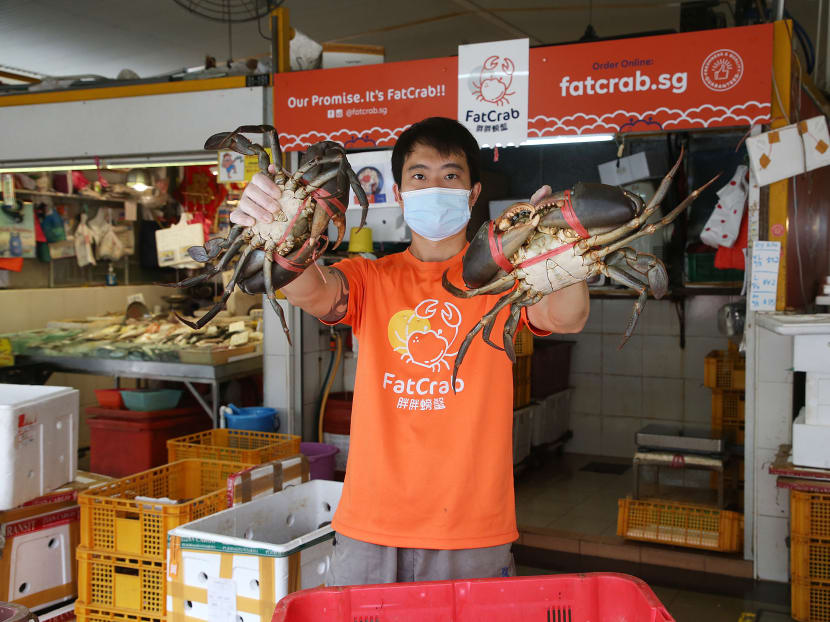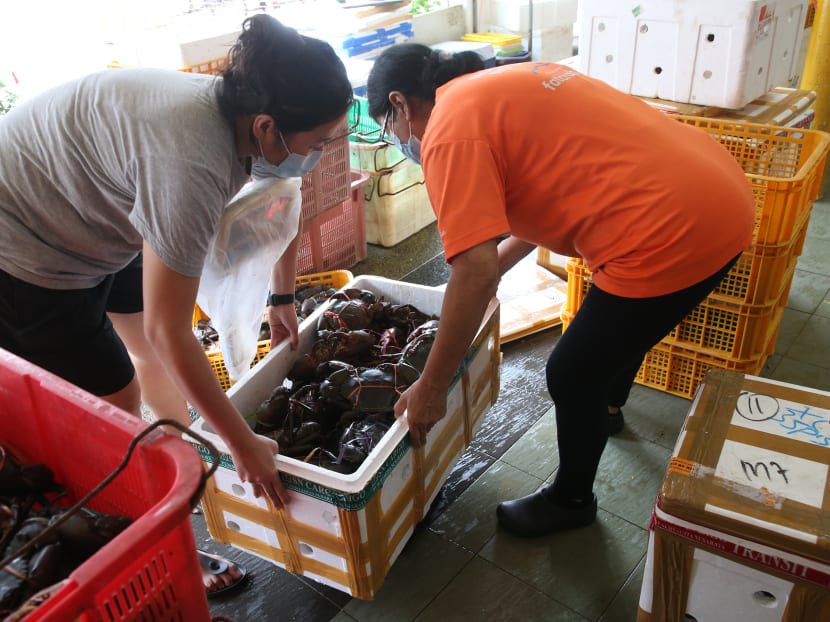SME Diaries: Covid-19 hit our mud crab business badly, but we shifted gears and turned it around
In this first instalment, Mr Louis Tan Zi Jing, manager at a mud crab import and distribution firm, describes being in great distress when the business took a bad hit when the pandemic struck. A move away from its mainstay of serving restaurants to selling its products to the masses has kept the firm going.

Mr Louis Tan Zi Jing recounts being in great distress when his mud crab import and distribution business took a hit because of the Covid-19 pandemic.
Small- and medium-sized enterprises (SMEs), which form 99 per cent of businesses in Singapore, have felt the impact of Covid-19 keenly. TODAY’s Voices section is publishing first-hand accounts from SME owners and managers on the highs and lows of running a business in the pandemic.
In this first instalment, Mr Louis Tan Zi Jing, manager at a mud crab import and distribution firm, describes being in great distress when the business took a bad hit when the pandemic struck. A move away from its mainstay of serving restaurants to selling its products to the masses has kept the firm going.
I joined my father’s mud crab import and distribution business FatCrab in 2016, helping in operations.
My father had been in the seafood business for 20 years.
Before that, I worked in the aerospace sector.
When Covid-19 hit last year, we did not know how serious it would be, but business came to a stop within weeks when borders shut.
Before the pandemic, FatCrab served only restaurants that were mainly dependent on tourists.
Before we knew it, restaurants stopped their orders for crabs and sales plummeted by 70 per cent in a few months.
The heavy losses were a big wake-up call.
Initially, we were too stunned to change our business model drastically.
Honestly, staff morale was not affected greatly, mainly because we did not institute pay cuts or unpaid leave. We took a wait-and-see approach.
We soon realised that Covid-19 was evolving into a global pandemic.

My dad and I were mulling over our options daily and were often in great distress.
We knew then that FatCrab had to find a new source of customers.
As restaurant orders dropped, diversifying our business by marketing products to the public would help.
We worked with a trusted consultant from a branding consultancy to create an identity with which the public could identify.
We had loyal customers for our mud crabs, but we were not widely known.
We were confident about the quality of our crabs and just had to get the word out.
Instead of selling crabs only to restaurants, we started selling directly to consumers.
We also concocted our own chilli crab sauce, which is our bestseller.
In the months that followed, the business stayed afloat, though we were still in the red.
In growing our business-to-consumer focus, we increased our headcount by starting a marketing team, which works on campaigns and marketing strategies.
We also have designers working on our social media pages and staff members handling customer service.
This has led to better direct sales.
We have about 10 employees now, up from seven.
The past two or so years of the pandemic have been challenging.
We are still not out of the woods but are seeing some light at the end of the tunnel.
Sales revenue remains at a fraction of pre-pandemic levels and we are still making losses, though government subsidies have helped greatly.
Even now, with borders reopening slowly, demand from restaurants has not rebounded to pre-pandemic levels because of the low tourist numbers.
Yet we have to keep going.
This crisis has helped me appreciate many things, including our responsible employees, and the help from family and friends.
We are also thankful for partners such as NTUC U SME, a labour movement unit that supports SMEs. It has offered many avenues for assistance, grants, seminars and training to help us become a stronger company.
We are extremely grateful that our business has survived.
Ultimately, Covid-19 is a reminder that we, as business owners, have a great responsibility to our employees and their livelihoods.
ABOUT THE WRITER:
Mr Louis Tan Zi Jing, 33, is manager at Tradeocean International. His father founded the firm, otherwise known as FatCrab, in 1994. While Mr Louis Tan learnt the ropes in the first few years of joining the company in 2016, it was Covid-19 that taught him the importance of transforming the business so as to sustain it and retain workers.
If you are an SME owner or manager with an experience to share or know someone who wishes to contribute to this series, write to voices [at] mediacorp.com.sg with your full name, address and phone number.






